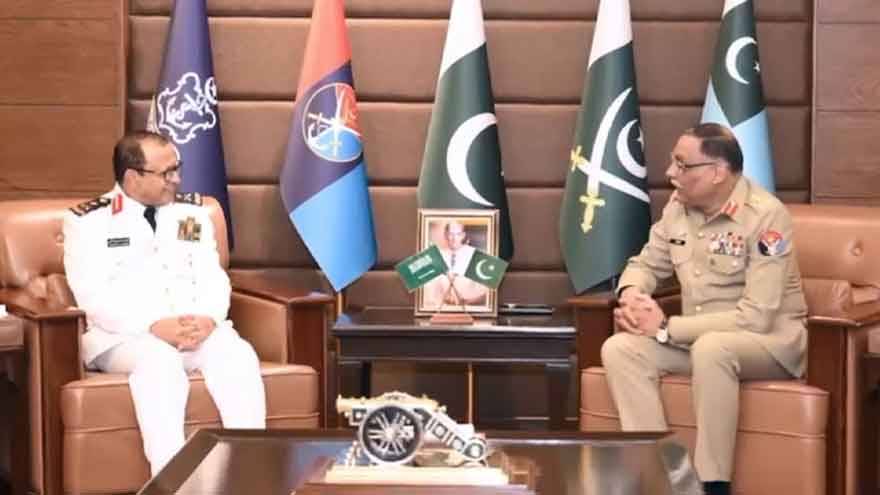The Chief of the Royal Saudi Naval Staff recently visited Rawalpindi to engage in a strategic dialogue with General Sahir Shamshad Mirza, Chairman Joint Chiefs of Staff Committee (CJCSC), of Pakistan. The meeting focused on strengthening naval ties, enhancing interoperability, and coordinating efforts in maritime security under the broader Saudi–Pakistan strategic partnership.
Strategic Maritime Cooperation
During formal discussions, senior naval commanders and defense representatives from both nations reviewed:
- Current joint exercises and naval officer exchanges
- Proposals for future collaborative training, including tactical drills and personnel development
- Regional maritime challenges, such as piracy, smuggling, and IUU (illegal, unreported, and unregulated) fishing
- Security synergies in the Arabian Sea and Gulf of Oman
The dialogue centered on forging a shared roadmap for maritime stability and coordinated defense readiness.
Defense Diplomacy and Mutual Trust
The visit underscores the strength of Pakistan–Saudi defense cooperation, deepening long-standing military relations. It also serves to:
- Reinforce mutual trust through high-level consultation
- Enhance capacity for joint naval operations and crisis response
- Expand opportunities for defense technology exchange and capability development
This engagement reflects both nations’ shared interest in ensuring regional peace and unity through maritime collaboration.
Broadening Collaboration Beyond Navies
Beyond direct naval operations, discussions included:
- Logistics and supply chain coordination for naval deployments
- Defense industrial cooperation, including shipbuilding and ship maintenance
- Information sharing and maritime domain awareness, utilizing satellite and radar systems
- Humanitarian assistance and disaster relief (HADR) coordination in regional emergencies
These topics signal a comprehensive vision for maritime partnership across operational and technical domains.
Next Steps for Implementation
To convert dialogue into action, both sides are expected to:
- Organize joint naval exercises, timing to be aligned in future calendars
- Launch training exchange programs for mid-career naval officers
- Initiate technical working groups on maritime safety, surveillance, and defense collaboration
- Integrate maritime cooperation milestones under existing bilateral strategic frameworks
This operational path will lay the foundation for long-term maritime collaboration in line with regional security needs.
Conclusion
The meeting between Pakistan’s CJCSC and the Saudi Navy Chief signals renewed momentum in Pakistan–Saudi naval relations. With an agenda encompassing joint training, maritime security coordination, and technological cooperation, this diplomatic engagement strengthens a vital defense partnership. The initiative paves the way for more synchronized naval capabilities and regional stability through enhanced Pakistan–Saudi collaboration.



Comments (0)
No comments yet. Be the first to comment!
Leave a Comment